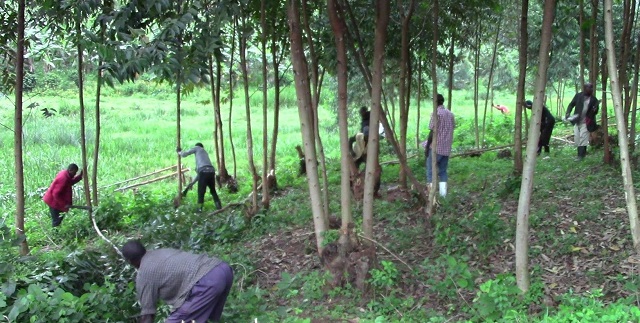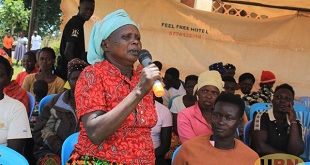
Masaka, Uganda | THE INDEPENDENT | Masaka City council is failing to restore depleted wetlands in the area. Some of the destroyed wetlands include Kajjansembe, Kassooka, and Ssenya located in the Kimanya-Kabonera division.
They are geographically connected and feed into the Nabajjuzi swamp which is the main source of water for the city and the nearby townships. The wetlands are used for cultivation by several people who are replacing the natural vegetation cover with seasonal and perennial crops, and other human activities that include among others bricklaying, clay and sand mining.
In February this year, during the National commemoration of the World Wetlands Day held in Masaka, the Minister of Environment Sam Cheptoris instructed the city leadership to evict all the encroachers and have the wetlands fully restored.
However, the instructions are yet to be fully implemented as people continue to deplete the wetlands and dig internal trenches to alter the natural flow of water, in a bid to drain the swamp for cultivation.
Frank Ssekiziyivu, who uses part of the Ssenya wetland to prepare vegetables, trees, and flower seedlings for commercial purposes, told Uganda Radio Network that the city enforcement teams only managed to evict a few people who were cultivating near the main road. He explains that when they were evicted, several people created pathways deep into the wetlands and continued with cultivation activities.
Our reporter has seen several gardens of beans, maize, cassava, cabbage, potatoes, and bananas among other crops that are growing inside the wetland. Some of the encroachers include a local pentecostal pastor identified as Gideon Ssinza of Ssenya Revival Church, who planted permanent trees, passion fruits, and cassava in the middle of the wetland, for which he claims to have a certificate of ownership.
In the state of city address delivered to the council mid-last month, Masaka City Mayor Florence Namayanja indicated that they have restored the biggest percentage of the depleted wetlands and given a one-month grace period for people with seasonal crops to harvest them and vacate.
But Sarah Naluyima, who also has a maize plantation in the wetland denied receiving any notice to vacate the wetland. “The land we are using is part of our family’s private mailo, we can only vacate after we are compensated,” she argues.
However, Pauline Nabadda, the Masaka City Senior Environment Officer remained tightlipped about the persistent destruction of the wetlands under her watch despite the Ministry’s instruction.
Last month, President Yoweri Museveni in his national address indicated that the cabinet was working on a comprehensive management plan that will provide a sustainable response to the environmental destruction in the country.
*****
URN
 The Independent Uganda: You get the Truth we Pay the Price
The Independent Uganda: You get the Truth we Pay the Price



